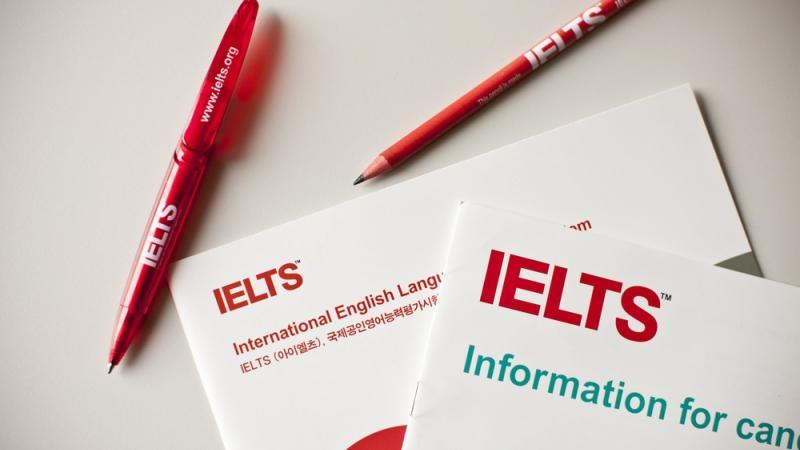Scholarships
List Of Documents Required for Diya Scholarship

Scanned documents students should submit to Diya Scholarship:
- Family Registration certificate: Many students get confused about this document. Click here to see how to get family registration Certificate from Nadra
- Head of Institute Attestation Form (HOI) (download it from DOWNLOAD Page, fill it out, attest it from the institute and make a scan and upload it.2.)
- Self CNIC (both sides)
- Father CNIC (both sides)
- Mother CNIC (both sides)
- Guardian’s CNIC (if other than applicant’s parents
- Matric Certificate
- Intermediate Certificate
- Bachelor’s Degree (If Applicant is in Master Level Program)
- Hifz Certificate (if exists, 5% marks will be given additional
- Disability Certificate (If any)
- All University Semester / Yearly results certificates where result is declared.
- Fee Receipts or Bank Challan for current year
- Salary Slip (If guardian is a salaried person)
- Pension document , showing name page and pension amount page. (If guardian is a pensioner)
- For those whose students whose father/guardian is a non-salaried person, provide “Enrollment Certificates” ( of all brothers and sisters who are studying from their institutes.
- Electricity Bill
- College Card if available.
Admissions
How to get Scholarships for College in US

How to get scholarships for college? it is basic question asked by random students in US. Today we will explain the ways for how to get scholarships for college in US.
Getting a scholarship for college in the United States can be a challenging task, but with the right guidance and preparation, it can be achieved. There are numerous scholarship programs available for students looking to further their education in the United States, and with the right approach, you can increase your chances of getting approved.
Strategies for how to get scholarships for college
- Research your eligibility: Before you start applying for scholarships, it is important to research your eligibility. It is important to ensure that you meet the eligibility criteria before you apply. Some common eligibility criteria include academic achievement, financial need, and community involvement.
- Start early: The early bird catches the worm. This is especially true when it comes to scholarships. Start your research and application process as early as possible to increase your chances of getting approved. This will give you enough time to gather all the necessary information and to submit a strong application.
- Utilize scholarship search engines: There are numerous scholarship search engines available online, and these can be a valuable resource for students looking to find scholarships that match their specific needs. Some of the best scholarship search engines include Fastweb, Scholarships.com, and Cappex.
- Check with your college or university: Most colleges and universities have a list of scholarships that are specifically designed for their students. You can check with your college or university to see what scholarships are available, and if you are eligible to apply.
- Look for outside organizations and foundations: Many foundations and organizations offer scholarships to students based on specific criteria, such as academic achievement, financial need, or community involvement. Do your research and see if there are any organizations or foundations that offer scholarships that align with your goals and interests.
- Network with alumni and professionals: Networking is an important aspect of scholarship applications, and it can help you find opportunities that you may not have known about otherwise. Reach out to alumni from your college or university and professionals in your field of study to see if they know of any scholarship opportunities that may be available to you.
- Prepare a strong application: A strong scholarship application is critical to your success. Your application should include a well-written personal statement, a detailed resume or CV, and strong letters of recommendation. It is also important to follow all the instructions provided by the scholarship program and to submit your application by the deadline.
- Maintain a strong GPA: Maintaining a strong GPA is one of the most important factors when it comes to getting approved for scholarships. It is important to work hard in your classes and to keep your grades up, as many scholarship programs require a minimum GPA.
- Show your involvement in extracurricular activities: Scholarship programs often look for well-rounded students who are involved in extracurricular activities. Get involved in clubs, sports, volunteer work, and other activities to demonstrate your commitment to your education and your community.
- Seek guidance from a professional: If you need assistance with your scholarship application, consider seeking guidance from a professional, such as a guidance counselor or a scholarship consultant. These professionals can provide you with valuable advice and guidance that can increase your chances of getting approved for a scholarship.
Conclusion
In conclusion, getting a scholarship for college in the United States can be a competitive process, but with the right preparation and approach, it can be achieved. Research your eligibility, start early, utilize scholarship search engines, check with your college or university, look for outside organizations and foundations, network with alumni and professionals, prepare a strong application, maintain a strong GPA, show your involvement in extracurricular activities, and seek guidance from a professional to increase your chances of getting approved for a scholarship.
Click here to see which universities in europe are best for education and scholarships
Admissions
4 Best European Countries for quality education And Scholarships

Studying in Europe is a dream for many students around the world, and for good reason. With its rich history, diverse cultures, and world-renowned universities, Europe is home to some of the best education and scholarships institutions in the world. From the bustling cities of London to the picturesque landscapes of Sweden, there are many countries to choose from when it comes to studying in Europe. In this article, we will be taking a look at the top 5 European countries to study and mentioning some of the best universities in each of these countries.
United Kingdom

The United Kingdom is home to some of the world’s most prestigious universities, including the University of Oxford and the University of Cambridge. With its rich history, vibrant culture, and thriving economy, the UK is an ideal destination for students looking to pursue their education in Europe. In addition to these top-ranked universities, the UK also offers a wide range of degree programs in various fields, from science and technology to business and the arts.
Germany

Germany is another popular destination for students looking to study in Europe. With its strong economy, high standard of living, and excellent universities, Germany is a great place to further your education. Some of the top universities in Germany include the Technical University of Munich, the Humboldt University of Berlin, and the Free University of Berlin. These universities offer a wide range of degree programs in fields such as engineering, medicine, and the natural sciences.
Spain

Spain is a vibrant country with a rich cultural heritage and a thriving education system. It is known for its sunny weather, friendly people, and world-class universities. With its commitment to providing high-quality education and a focus on student satisfaction, Spain is an ideal destination for students looking to study in Europe. Some of the top universities in Spain include the University of Barcelona, the University of Madrid, and the Autonomous University of Barcelona. These universities offer a wide range of degree programs in fields such as law, engineering, and the arts.
Italy

Italy is a country with a long history of excellence in education and a strong commitment to cultural heritage. With its beautiful cities, world-renowned museums, and thriving university culture, Italy is a popular destination for students looking to study in Europe. Some of the top universities in Italy include the University of Bologna, the University of Rome, and the University of Milan. These universities offer a wide range of degree programs in fields such as literature, history, and the arts.
Europe is the home of education and scholarships
In conclusion, Europe is home to some of the world’s best universities and offers students a diverse range of academic programs and cultural experiences. Whether you’re interested in studying in the UK, Spain, Italy, or one of the many other countries in Europe, you’re sure to find an educational program that meets your needs and helps you achieve your goals. So, if you’re considering studying in Europe, start researching your options today and take the first step towards an exciting and rewarding academic journey!
Admissions
Achieve 7 bands in IELTS, How?

IELTS, or the International English Language Testing System, is a widely recognized test of English proficiency for non-native speakers. Achieving a score of 7 bands in IELTS is considered to be a high level of proficiency and can open many doors for career and education opportunities.
Preparing for the IELTS can be a daunting task, but with the right approach and dedication, it is possible to achieve a high score in your first attempt.
Ielts Preparartion:
- Understand the test format: Familiarize yourself with the structure of the test, including the four sections (reading, writing, listening, and speaking) and the scoring system. This will give you a clear idea of what to expect on test day and help you develop a study plan.
- Build your vocabulary: A strong vocabulary is essential for doing well on the IELTS. Make a list of common IELTS vocabulary and practice using these words in context.
- Practice reading: The reading section of the IELTS is designed to test your ability to understand and interpret a variety of written texts. Practice reading academic texts and articles, and take note of any words or phrases that you don’t understand.
- Practice writing: The writing section of the IELTS requires you to write two essays, one of which must be at least 250 words in length. Practice writing essays on a variety of topics and focus on improving your grammar, vocabulary, and sentence structure.
- Practice listening: The listening section of the IELTS requires you to listen to recordings of native speakers and answer a series of questions. Practice listening to different types of recordings, such as lectures, speeches, and conversations, and take note of any words or phrases that you don’t understand.
- Practice speaking: The speaking section of the IELTS requires you to engage in a conversation with a certified IELTS examiner. Practice speaking on a variety of topics and focus on improving your pronunciation, fluency, and ability to express yourself.
- Time management: IELTS is a time-bound exam, so it’s important that you manage your time effectively. Practice taking the test under timed conditions and use techniques such as skimming and scanning to help you work through the reading and listening sections more efficiently.
- Take a practice test: Taking a practice test is a great way to familiarize yourself with the test format and to identify areas where you need to focus your studies.
- Get a good night’s sleep before the test: Being well-rested will help you to perform at your best on test day.
- Stay positive: Finally, stay positive and don’t get discouraged if you don’t do as well as you hoped on a practice test. Remember that the IELTS is just one test and that your score does not define you as a person. Keep studying and practicing and you will be well on your way to achieving a high score in your first attempt.
In conclusion, achieving a high score on the IELTS requires a combination of knowledge, skills, and preparation. By understanding the test format, building your vocabulary, practicing reading, writing, listening and speaking, managing your time effectively, taking practice test, getting a good night’s sleep before the test and staying positive, you will be well on your way to achieving a score of 7 or higher on the IELTS in your first attempt
For More Guidance and preparation kindly visit BEST IELTS preparation
-

 Tech3 months ago
Tech3 months agoWhatsApp’s New Audio Call Bar Feature Simplifies Calling Experience
-

 Phones3 months ago
Phones3 months agoInfinix Zero 30 (4G vs. 5G): Specifications, Features, and Prices in Pakistan
-

 Mobile Packages3 months ago
Mobile Packages3 months agoHow to Check Your Telenor, Zong, Ufone, Jazz SIM Number
-

 Phones3 months ago
Phones3 months agoEverything You Need to Know About Jazz Digit 4G Mobile Phones in Pakistan
-

 Tech3 months ago
Tech3 months agoGuide to Blocking and Unblocking Users on Snapchat
-

 iPhone3 months ago
iPhone3 months agoExploring JV iPhones: Prices, Risks, and Rewards in Pakistan
-

 Tech3 months ago
Tech3 months agoA New Era in Space Exploration: Pakistan’s First Lunar Mission Takes Flight
-

 Phones3 months ago
Phones3 months agoZTE Axon 60 Series: Affordable 4G Phones with Unisoc Chipsets






